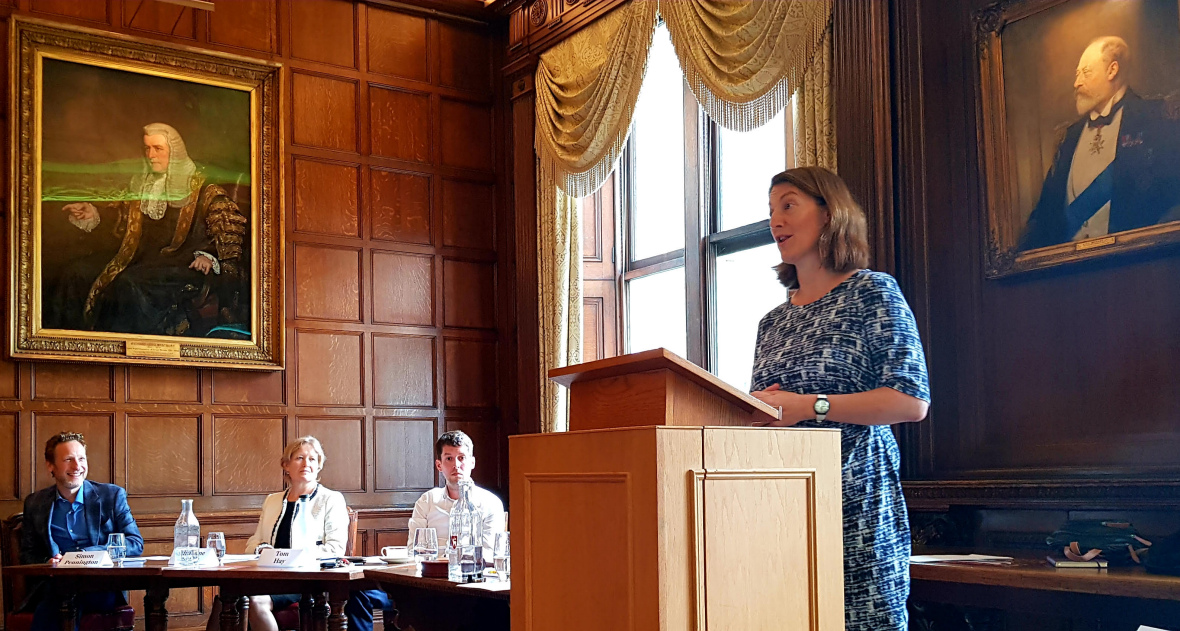
News
Is philanthropy failing?
16 May 2019

News
Is philanthropy failing?
16 May 2019
As inequality widens and society splinters, is philanthropy part of the problem, or the solution? In a lively breakfast debate convened by More, some of the brightest fundraising minds dissected the arguments. Read our blog below and download the argument précis here.
It feels of late that philanthropy has been under attack from all sides. At Davos 2019, historian Rutger Bregman called for less philanthropy and more tax. Authors Rob Reich and Anand Giridharadas have called out the democratic deficit that arises when one person’s million-dollar gift cuts across policies chosen by elected representatives. When fire ravaged Notre Dame, many wondered how the rebuilding effort could attract €1bn, while other causes struggled for funds.
For fundraisers, it has been a demoralising and painful time. At More, we felt the only way to respond was to bring together the best thinkers we know. We convened a breakfast debate in our Most Important Meal of the Day series of talks, exploring the motion, ‘This House believes philanthropy is failing’. We wanted two opposing sides to examine the range of views objectively, through contradictory dialogue. In the interests of debate, speakers were able to take a position with which they did not necessarily fully agree.
An expectant buzz
On the day, more than 60 senior professionals from across the philanthropy spectrum crammed into the solemn surrounds of Middle Temple. They represented a wide range of charitable sectors, including higher education, health, international development, schools, and the arts. The expectant pre-debate buzz was palpable.
The speakers warmed to their task immediately. Private philanthropist Tom Hay kicked proceedings off, arguing for the motion, with an incendiary analysis that philanthropy is “badly organised, ruled by privilege and inequality, and fundamentally undeserving of tax relief.” It’s time, he claimed, for donors to “start considering the State a lot more seriously as a preferred agent of change”.
From money-making to meaning-making
In a robust response, Beth Breeze, Director of the Centre for Philanthropy at the University of Kent, argued that without tax relief those causes which receive limited government funding, such as animal welfare, hospices or air ambulances, would suffer. Crucially, she attacked the line that philanthropy protects privilege, arguing instead that only a small fraction of the £10bn raised each year from individuals comes from ‘elite’ donors. In any case, those richest donors are simply “trying to turn their money-making into meaning-making. They want to catalyse, to complement, to extend and sometimes to challenge government spending.”
Next up, Catherine Roe, Director of CMR Consult Ltd, echoed Tom’s views on privilege. She was not opposed to tax relief, but asked: “What is the justification for the taxpayer disproportionately subsidising the preferences of the wealthy? In the UK, taxpayers effectively pay 45% of a richer donor’s charitable gifts for them, whereas they pay only 20% of a poorer donor’s gift, and none at all if the donor is not a taxpayer.” She focused on foundations, arguing that they further the narrow interests of their overwhelmingly white, over-65 boards. As a result, they are bad at the thing they could do best – the ‘discovery’ work that may be too risky or long-term to attract government funding.
Don’t blame philanthropy
Last up among the guest speakers was Zoe Sprigings, Programme Director at C40 Cities Climate Leadership Group, who argued that we shouldn’t blame donors for the problems of our society. Rather we should celebrate those rich donors who have “put their heads above the parapet” to do something positive with their wealth. At the same time, we should look askance at the priorities of the people we elect. And we should recognise that, when governments fail, philanthropy steps in time and again to tackle our most complex, global challenges.
By this stage, the audience was reeling. We had gone from bitter evidence of a failing philanthropy to the triumphant truth of doing good, and back again. It was, in the words of one participant, “unsettling and delightful, reassuring and daunting, hopeless and full of hope”.
We must do more
Contributions from the floor – and concluding statements from our very own Marc Whitmore and Simon Pennington – added to the richness of the interchange. Slowly, a way forward emerged. Yes, some philanthropy is failing, but much isn’t. We should stand up for it as a force for good. And we must do more – both to attract a new generation of young philanthropists, and to help our donors consider their role in society.
In the end, the motion ‘Philanthropy is failing’ was defeated by a ratio of two to one, which suggests there is still much to do. Many of those speaking did at least agree on one thing – that our society is failing right now. We face urgent problems, whether from rising inequality, the imminence of climate change or increasingly divided communities. Philanthropy both reflects this world and shapes it.
And, as Marc Whitmore put it: “Society is broken, but if you throw out philanthropy what’s your alternative? Philanthropy is part of making tomorrow better than today.”
If you want to read more, download our précis of the debate. In the coming months, we will convene a group of people from across the sector to create a way forward. Let us know if you would like to be involved.